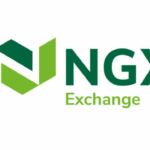
The Delta State House of Assembly on Wednesday approved a supplementary budget of N71bn presented to it by outgoing Governor, Ifeanyi Okowa, barely 13 days to the end of his tenure in office.
In his letter to the Assembly, Okowa said, “May I wish to note that there has been actual and projected increase in some fiscal receipts. Consequently, the supplementary budget has become necessary for appropriation to pay for some critical projects and activities of government as well as fund ongoing projects across the state in year 2023.
“In the light of the foregoing, it would be greatly appreciated if the draft 2023 Supplementary Appropriation Bill is placed before the House at it earliest convenience for consideration and passing into law.”
The Deputy Speaker of the House,Christopher Ochor, who presided over the plenary, said the budget was made up of N5.6bn for recurrent expenditure and N65.5bn for capital expenditure.
The Majority Leader, Ferguson Onwo, moved a motion for the first reading of the budget which was unanimously adopted when put to a voice vote by the Deputy Speaker.
The supplementary Appropriation Bill was read the second time on Wednesday and was passed into law by the House just 12 days before the end of Okowa’s administration.
Meanwhile, elected and re-elected governors, on Wednesday, in Abuja, took turns to speak on the rising debt profile of states across the federation.
The governors spoke in Abuja on Day 3 of the ongoing 2023 Induction for re-elected and elected governors, organised by the Nigeria Governors’ Forum.
Fielding questions from journalists at the event holding at the Banquet Hall of the Presidential Villa, Bauchi State Governor, Bala Mohammed, blamed the World Bank for granting loans to sub-national and central governments, without pointing out the dangers of borrowing.
He said, “I wonder what the World Bank is doing. Apart from giving us grants and of course, loans, they should be able to raise a red flag and tell the managers of our economy that we cannot continue to borrow endlessly. Our debt servicing requirement is about 95 per cent of revenue. As a result, the states are affected by this macro-economic reality.”




